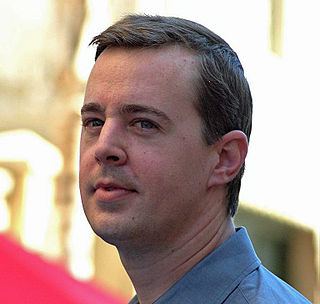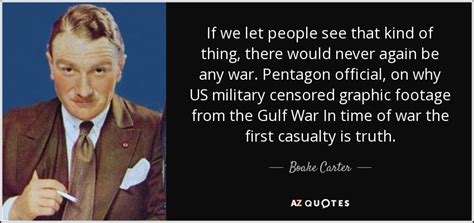A Quote by Tariq Ali
During the Gulf War, journalists used to challenge government news managers and insisted they wouldn't just accept the official version of events.
Related Quotes
Journalists go to press briefings at the Ministry of Defense in London or the Pentagon in Washington, and no critical questions are posed at all. It's just a news-gathering operation, and the fact that the news is being given by governments who are waging war doesn't seem to worry many journalists too much.
Our military superiority is so great - it's far greater than it was in the Gulf War, and the Gulf War was over in 100 hours after we bombed for 43 days. And so now they can bomb for a couple of days and then just roll into Baghdad... The odds are there's going to be a war and it's going to be not for very long.
Many journalists now are no more than channelers and echoers of what Orwell called the official truth. They simply cipher and transmit lies. It really grieves me that so many of my fellow journalists can be so manipulated that they become really what the French describe as functionaires, functionaries, not journalists.
Japan suffered terribly from the atomic bomb but never adopted a pose of moral superiority, implying: 'We would never have done it!' The Japanese know perfectly well they would have used it had they had it. They accept the idea that war is war; they give no quarter and accept none. Total war, they recognize, knows no Queensberry Rules. If you develop a devastating new weapon during a total war, you use it; you do not put it into the War Museum.






































